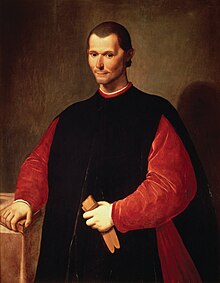After his untimely assassination, President John F. Kennedy became the subject of a flood of adoring biographies.
Among these:
- With Kennedy, by Pierre Salinger;
- A Thousand Days: John F. Kennedy in the White House, by Arthur M. Schlesinger, Jr.;
- Kennedy, by Theodore C. Sorensen;
- The Pleasure of His Company, by Paul B. Fay;
- My Twelve Years With John F. Kennedy, by Elvelyn Lincoln;
- Conversations With Kennedy, by Benjamin C. Bradlee.
Many of these appeared shortly after his death. Some—such as A Thousand Days and Kennedy—were massive—totaling 1,087 pages for the first and 758 pages for the second.

John F. Kennedy
Many of these books were written by those who had worked closely with Kennedy and knew his most intimate secrets. Yet the worst of those secrets did not emerge until the early 1970s.
Among those:
- Kennedy’s compulsive womanizing.
- His poor health and reckless use of drugs (licit and illicit) to control it.
- His waging a no-quarter war on Fidel Castro (including using the Mafia to try to assassinate the Cuban dictator).
Kennedy inspired loyalty by somehow making those around him feel they were valued—and partners in a great historical moment.
By contrast, Donald Trump had held office less than two years when three books highly critical of him emerged.
The first, Fire and Fury, by Michael Wolff, appeared in January, 2018. The second, Unhinged, by Omarosa Manigault-Newman, came out in August.
Among the reviews of Fire and Fury:
“What makes the book significant is its sly, hilarious portrait of a hollow man, into the black hole of whose needy, greedy ego the whole world has virtually vanished.”―The Guardian
“An undeniably juicy chronicle of a presidential administration that in just one year has been beset by numerous scandals and crises….” ―The San Francisco Chronicle
Wollf is an author, essayist, journalist, and columnist. He was never a member of Trump’s inner circle—yet he was given extraordinary access to those who worked in the West Wing of the White House.
Donald Trump
Manigault-Newman, on the other hand, had known Trump intimately since 2003, when she first appeared on his NBC “reality” series, The Apprentice. She campaigned for him in 2016 and followed him into the White House as director of communications for the Office of Public Liaison—until she was fired in December, 2017.
After her firing, she abruptly underwent a conversion from worshiper to heretic. As a reviewer on Amazon.com put it:
“It’s a story that starts with a starry eyed younger Omarosa, and ends with her freedom from the ‘TrumpWorld cult’.
“Along the way she becomes increasingly aware that her former mentor, friend, and idol, has no empathy for others, is narcissistic to an extreme, does not read or intake new information unless it’s on a favored cable TV channel, and she also sees signs of dementia-like behavior leaving her wondering what, if anything, she can do as an insider.”
And on September 11th, the most devastating book yet to appear on Trump made its debut: Fear: Trump in the White House.
Its author was Bob Woodward, legendary investigative reporter and Washington Post associate editor.
Woodward “made his bones” as a journalist with Carl Bernstein from 1972 to 1974. Their reporting made “Watergate” a household word—and helped bring down President Richard M. Nixon.
Perhaps the most startling secret to be found within Woodward’s book: Nearly every member of Trump’s handpicked staff considers him an idiot.
- His former Secretary of State, Rex Tillerson: “He’s a fucking idiot.”
- John Kelly, his now former chief of staff: “He’s an idiot. It’s pointless to try to convince him of anything. He’s gone off the rails. We’re in crazytown,”
- His now former Secretary of Defense James Mattis: Trump acted like—and had the understanding of—“a fifth- or sixth-grader. ”
- His former lawyer, John Dowd, warned Trump not to testify before Special Counsel Robert Mueller: “It’s either that or an orange jumpsuit” for perjury.
In The Prince, Niccolo Machiavelli raised the question of “whether it is better to be loved than feared, or feared more than loved.”
And he answered it: “The reply is, that one ought to be both feared and loved, but as it is difficult for the two to go together, it is much safer to be feared than loved.”
But Machiavelli warned against relying primarily on fear: “Still, a prince should make himself feared in such a way that if he does not gain love, he at any rate avoids hatred, for fear and the absence of hatred may well go together.

Niccolo Machiavelli
If Trump ever read Machiavelli, he has ignored this warning with a vengeance.
By repeatedly showing himself ignorant of—and even indifferent to—the realities of Presidential statecraft, Trump quickly forfeited the respect of his top staffers and Cabinet officials.
As a result, Trump has produced a dysfunctional administration constantly teetering on the edge of meltdown.
And by regularly humiliating those staffers and Cabinet officials, he destroyed their ties of loyalty to him as a man and President.
This has produced legions of angry, disillusioned members seeking revenge—and they will eagerly leak Trump’s latest embarrassing secrets to the first reporter who comes asking.